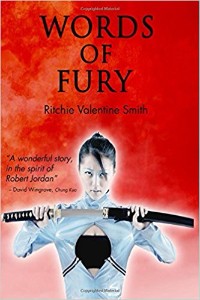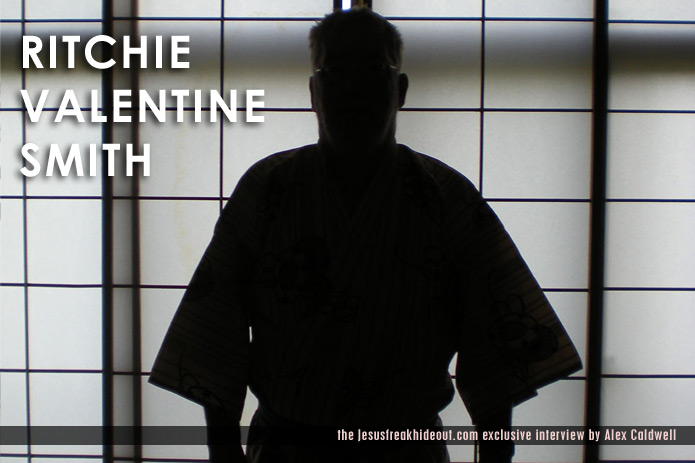
Writers of fiction, by the very nature of their work, create whole, encapsulated worlds within their words, and a whole cosmos between the front and back cover of their books. Their settings might be recognizable and down to earth, but the rules and norms of the world they've invented are totally up to the writer. In their world, what we know of as "normal" might be the opposite because of some event before the timeframe of that story. A house and neighborhood just like yours could be vastly different and operate by completely different standards of normal. This is the joy of writing, to imagine scenarios and stories that are as endless as your imagination and work ethic.
And for the writer of a fantasy or science fiction world, the creative stakes and opportunities are that much higher and greater. For this writer not only needs to create vast universes and people groups (for instance, the Star Wars universe, or the worlds of Harry Potter or Lord Of The Rings), but they need to explain the rules and norms of that created world while still maintaining a coherent and engaging plot. Perhaps there are multiple moons on a protagonist's planet, like Luke Skywalker's home world of Tatoonie, or a train that takes off from a secret platform for a wizarding school at the beginning of the school year. These details and nuances of your world not only need to be invented, but they need to be explained credibly if the average reader is to continue past the first chapter or so.
Ritchie Valentine Smith's Words Of Fury, the second book in his Words Of Power series, does an admirable job in continuing the massive world building and epic adventure that he began in Words Of Power. Smith takes a world that seems "realistic" on the outset (17th century, feudal Japan) and infuses it with both the mystical (the demonic, powerful arch-villain The Lord Of The North, a mystical singer, The Voice From Afar and a whole other host of colorful and magically imbued characters), and an alternative history "steam punk" version of the British Empire at its peak powers and influence. There are a lot of ingredients in this fantasy stew of Smith's, but the mash up of time frames (airplanes and other mechanical devices 300 years before their invention) is credibly done, and proves to be a fruitful setting for a rollicking good action-adventure novel that sometimes veers a little too close to overkill, but still manages to stay on course for its nearly 500-page runtime. Thankfully, Smith helpfully provides a detailed breakdown of places and people in the back of the book, and with this legend to the map, the reading of Words Of Fury (with its many characters and settings) becomes an easier task, and one that transports you to a far off time and space.
The mash up of characters in the fantasy, steam punk, martial arts and magical realms of the Words series brings to mind a Manga or Anime template, and the (at times) crowded plot lines and character arcs work as a whole decade's worth of those comic books or cartoons. In fact, the Words series is almost the "text" version of these kinds of story telling genres. And that's a compliment. Smith has an ear and mind for this kind of narrative, and with that background in mind, Words Of Fury reads as a dense, imaginative and epic tale of the hero Emmanuel (called simply "man" for most of the book) and his band of friends as they battle the many obstacles that pop up in tales of this sort. And, if taken a bit deeper, the journey of "Man" could be seen as the struggle of all mankind, orphaned and adrift (perhaps estranged and alienated from a holy God, as in the Biblical narrative) trying to make their way home.
If there was one small critique, it's that there is a decided lack of setting description as the action and scenes shift rapidly around. The dizzying movement of the plot, as heroes and villains trade chapters, would make for a sharp Anime or Manga (with visuals taken care of in other ways), but in novel form, there needs to be a little more time to let the scene "breathe," to establish where the action is and what it "looks" like. This allows for the reader to have a deeper level of immersion and connection with the world they're joining, one chapter at a time. But that's a minor quibble. Words Of Fury is a fast-moving, epic tale, full of lots of moving parts and characters, and fans of Game Of Thrones and other dense, epic series will finds lots to chew on here.
Perhaps Words Of Fury is a bit like the steam punk machines that populate its pages; there are lots of whirling parts in motion, and it may be a bit loud at times. But, in the end, it will surely take the reader on a great journey if they climb aboard.
- Review date: 12/14/17, written by Alex Caldwell of Jesusfreakhideout.com

|
Ritchie Valentine Smith: I came originally from Tyneside, in the North-East of England – where the Industrial Revolution started, though now it's rust belt in many places. My current home is the top half of an 1850s terraced house in central London. I can hear Big Ben. My office is a small, quiet space, though I can see out over the rooftops, and also over our roof terrace where we have a baby olive tree. I sometimes hand-write my first-draft chapters. I then revise on my PC, although the final stage always involves hand-correcting printed pages.
Ritchie: Long, long ago... I suppose I'm lucky, in that I became a published poet quickly and sold SF novellas here in the UK at the first attempt. I'm a populist, though. I want to create work people respond to.
Ritchie: I really admire Robert Jordan, the fantasy writer, and I also love Keith Roberts' tapestry of a novel Pavane. What drew me originally to Japan was James Clavell's Shogun. Shogun is possibly the greatest SF novel ever which is not called SF. It's about an explorer thrown into a dangerous alien world – samurai Japan, very different, hard to understand, but sometimes exotically beautiful – where everything is at risk. It's also a touching love story.
Ritchie: On my desk lately would be David Mitchell's The Thousand Autumns of Jacob de Zoet. This is mainly set in Nagasaki, around the year 1800. Mitchell has a rich writing style and a wonderful imagination. I'm now writing about the siege of The Waning of the Moon for my next book, Words of Darkness, so I've begun reading 'Huê 1968' by Mark Bowden, who wrote Black Hawk Down. This book is about the twenty-four day battle for Huê, Vietnam's cultural capital. I'm expecting to learn a lot! I might also re-watch Apocalypse Now to get myself right into the mood. For music, I listen to all kinds: jazz with an edge – the Mahavishnu Orchestra most of all – and folk music of many different sorts, for example Sandy Denny singing "The Banks of the Nile." I've also seen Ed Sheeran live, and he's brilliant.
Ritchie: Though I'm nominally writing fantasy, a lot of what I write is a response to things I've heard of, done, or experienced. I have spent time in Jerusalem. This is perhaps the most fantastic place on God's good earth, and soon I will write about it being besieged. I look at the Middle East, the persecution of Yazidis and local Christians, and I feel for them in my soul, and I want to write about how we might triumph over prejudice and persecution.
Ritchie: I've worked in theatre, and the best aspect of that is hearing people laugh at your jokes and cry at your tragedies. (You hope they don't laugh at your tragedies and cry at your jokes...) The best thing about writing novels is that you can create entire worlds. In SF & fantasy you can do anything; you're a creator celebrating creation. I love that. The greats, like Tolkien and Robert Jordan, have inspiring power: they are makers, and make worlds that are real to a reader. I sometimes dare to think I've done that.
Ritchie: I hate checking for continuity ... although it's vital. I re-sequence a lot, and when you have a scene where someone is dressed in red, and you merge that with a scene where the same person is suddenly dressed in blue, that's an annoyance you must eliminate. A reader's belief is a precious thing, and as a writer you are always the first reader of your own work.
Ritchie: I intend to show love for as many peoples and cultures as I can. I criticize; but I want to celebrate all of us. Shogun, mentioned earlier, first opened the door to the East for me.
Ritchie: I'm working on volume 3 of the Words of Power series. In Words of Darkness the war between light and darkness gets deadly, some of the best people die, and the right side takes a terrible hammering. On a lighter note, I also do some reviewing for the British Fantasy Society, and recently covered novels by Vonda McIntyre and George R. R. Martin.
Ritchie: I would say read as much as you can, learn about the field you want to practise in, see why the giants are giants and the writers of restricted growth are restricted. Find an audience as soon as you can, however small. And, most of all, believe in yourself and keep going.
|
 Journey Member Jonathan Cain Releases "Only A Prayer Away" EP Journey Member Jonathan Cain Releases "Only A Prayer Away" EPFri, 27 Feb 2026 23:50:00 EST |
 Tommee Profitt x Jon Reddick Release New Song From Upcoming Project Tommee Profitt x Jon Reddick Release New Song From Upcoming ProjectFri, 27 Feb 2026 18:20:00 EST |
 AOH Music Invites Listeners to Listen to "BEHOLD (Acoustic Live), Vol. 2" AOH Music Invites Listeners to Listen to "BEHOLD (Acoustic Live), Vol. 2"Fri, 27 Feb 2026 18:19:00 EST |
 Micah Tyler Announces Release of New Song, "Perfectly" Micah Tyler Announces Release of New Song, "Perfectly"Fri, 27 Feb 2026 18:10:00 EST |
 CeCe Winans Announces Her Biggest Tour Yet with COME WORSHIP! Tour CeCe Winans Announces Her Biggest Tour Yet with COME WORSHIP! TourFri, 27 Feb 2026 18:00:00 EST |
 250 Artists Gather Together with Bill Gaither Ahead of His 90th Birthday, Out March 27 250 Artists Gather Together with Bill Gaither Ahead of His 90th Birthday, Out March 27Fri, 27 Feb 2026 17:55:00 EST |
 11th Hour's "Jesus In A Jail Cell" Serves Us a Universal Message 11th Hour's "Jesus In A Jail Cell" Serves Us a Universal MessageFri, 27 Feb 2026 17:47:00 EST |
 Click here All News Headlines |
Click here All News Headlines |